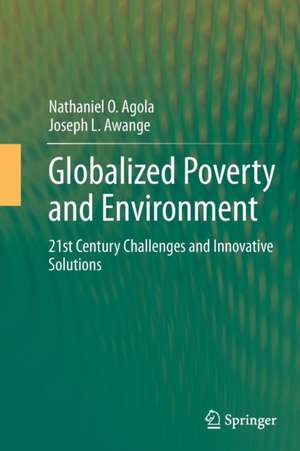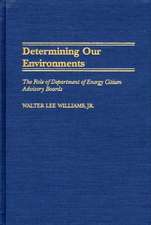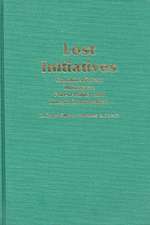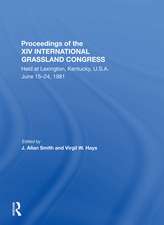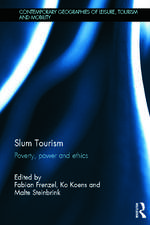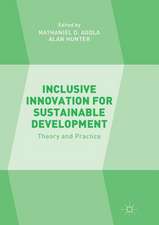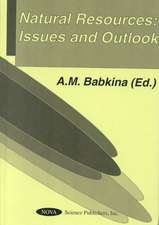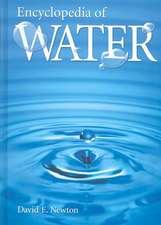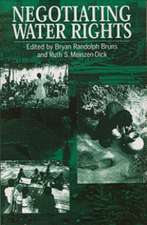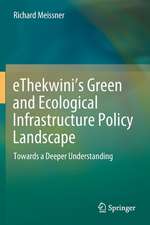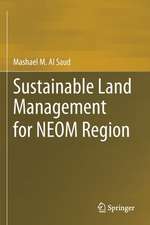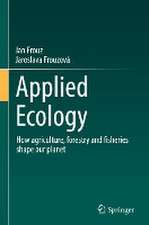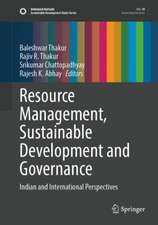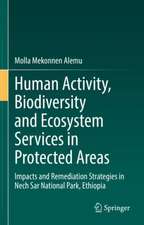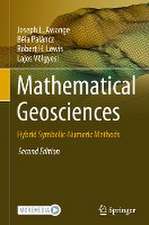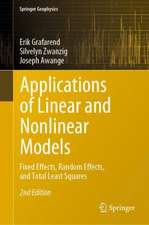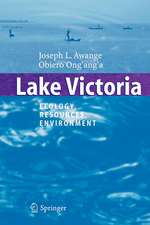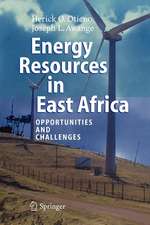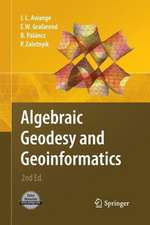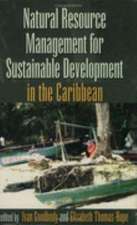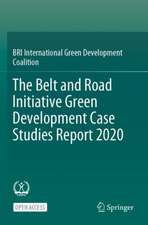Globalized Poverty and Environment: 21st Century Challenges and Innovative Solutions
Autor Nathaniel O. Agola, Joseph L. Awangeen Limba Engleză Paperback – 27 aug 2016
We find the theories and measures to be less-than perfect and therefore point out the need to treat these measures and theories as convenient tools lacking perfect accuracy and utmost scientific reliability. It follows then that the supposedly knowledgeably crafted poverty reduction and environmental preservation solutions are inherently imperfect.
The economic solutions proposed in this book transcend extant humdrum macroeconomic and policy measures targeting poverty and environmental issues. We point to a new paradigm in which private sector and other stakeholders can create new and inclusive markets where value is co-created and shared.
Above all, this book offers timely state-of-the-art geospatial solutions targeting the most pressing global problems of water, e.g., the use of the Gravity Recovery and Climate Experiment (GRACE) missions to estimate changes in stored water in the water-poverty-environment nexus, pollution, agriculture and disaster management, where geospatial techniques are appliedunder strong environmental impact assessment regulatory regimes.
This book provides a good summary of economic theories of poverty as well as a vivid depiction of the state of environmental degradation in the world. People often work separately on different issues that are, in fact, closely intertwined. The principle of holism is that the whole is greater than the sum of its parts, and I believe that this joint-venture of two experts on poverty and environment has produced something more than a sum of two separate monographs on the issues. Various points raised in this volume are worth heeding when we think of formulation and implementation of a truly effective post-MDGs development agenda.
Yoichi Mine, Professor of Human Security and African Area Study, Graduate School of Global Studies, Doshisha University, Japan
| Toate formatele și edițiile | Preț | Express |
|---|---|---|
| Paperback (1) | 645.28 lei 6-8 săpt. | |
| Springer Berlin, Heidelberg – 27 aug 2016 | 645.28 lei 6-8 săpt. | |
| Hardback (1) | 651.67 lei 6-8 săpt. | |
| Springer Berlin, Heidelberg – 7 noi 2013 | 651.67 lei 6-8 săpt. |
Preț: 645.28 lei
Preț vechi: 759.15 lei
-15% Nou
Puncte Express: 968
Preț estimativ în valută:
123.49€ • 127.95$ • 103.06£
123.49€ • 127.95$ • 103.06£
Carte tipărită la comandă
Livrare economică 21 martie-04 aprilie
Preluare comenzi: 021 569.72.76
Specificații
ISBN-13: 9783662501245
ISBN-10: 3662501244
Pagini: 393
Ilustrații: XIX, 374 p. 83 illus., 80 illus. in color.
Dimensiuni: 155 x 235 x 21 mm
Greutate: 0.55 kg
Ediția:Softcover reprint of the original 1st ed. 2014
Editura: Springer Berlin, Heidelberg
Colecția Springer
Locul publicării:Berlin, Heidelberg, Germany
ISBN-10: 3662501244
Pagini: 393
Ilustrații: XIX, 374 p. 83 illus., 80 illus. in color.
Dimensiuni: 155 x 235 x 21 mm
Greutate: 0.55 kg
Ediția:Softcover reprint of the original 1st ed. 2014
Editura: Springer Berlin, Heidelberg
Colecția Springer
Locul publicării:Berlin, Heidelberg, Germany
Cuprins
Poverty and Environmental Link.- Theoretical Framework for analyzing Poverty.- Economic Theories of Poverty and Poverty Eradication.- Traditional Measures of Poverty Lines.- Recent Developments.- The Human Development Perspective.-Emerging Conceptual Issues and Rural Urban Dichotomy.- New Conceptual Issues in the Measurement of Poverty and the Dichotomy of Urban and Rural Poverty.- Poverty and Income Inequality – Global Perspective.- Review of Global Poverty Eradication Solutions.- Environmental Disaster-poverty Link.- Degradation of Natural Resources.- Water, an Environmental-Agricultural Link.- Environmental Pollution in Relation to Poverty.- Impact Assessments in support of Poverty Alleviation
Textul de pe ultima copertă
This book reviews the key conceptions and economic theories of poverty, explains poverty-environment nexus, and finally offers innovative socio-economic and scientific geospatial solutions for the 21st Century. The book makes it possible for our readers to understand poverty thorough a concise review of the major theoretical economic frameworks, measures of poverty, and points out the need to understand rural-urban dichotomy of poverty.
We find the theories and measures to be less-than perfect and therefore point out the need to treat these measures and theories as convenient tools lacking perfect accuracy and utmost scientific reliability. It follows then that the supposedly knowledgeably crafted poverty reduction and environmental preservation solutions are inherently imperfect.
The economic solutions proposed in this book transcend extant humdrum macroeconomic and policy measures targeting poverty and environmental issues. We point to a new paradigm in which private sector and other stakeholders can create new and inclusive markets where value is co-created and shared.
Above all, this book offers timely state-of-the-art geospatial solutions targeting the most pressing global problems of water, e.g., the use of the Gravity Recovery and Climate Experiment (GRACE) missions to estimate changes in stored water in the water-poverty-environment nexus, pollution, agriculture and disaster management, where geospatial techniques are applied under strong environmental impactassessment regulatory regimes.
This book provides a good summary of economic theories of poverty as well as a vivid depiction of the state of environmental degradation in the world. People often work separately on different issues that are, in fact, closely intertwined. The principle of holism is that the whole is greater than the sum of its parts, and I believe that this joint-venture of two experts on poverty and environment has produced something more than a sum of two separate monographs on the issues. Various points raised in this volume are worth heeding when we think of formulation and implementation of a truly effective post-MDGs development agenda.
Yoichi Mine, Professor of Human Security and African Area Study, Graduate School of Global Studies, Doshisha University, Japan
We find the theories and measures to be less-than perfect and therefore point out the need to treat these measures and theories as convenient tools lacking perfect accuracy and utmost scientific reliability. It follows then that the supposedly knowledgeably crafted poverty reduction and environmental preservation solutions are inherently imperfect.
The economic solutions proposed in this book transcend extant humdrum macroeconomic and policy measures targeting poverty and environmental issues. We point to a new paradigm in which private sector and other stakeholders can create new and inclusive markets where value is co-created and shared.
Above all, this book offers timely state-of-the-art geospatial solutions targeting the most pressing global problems of water, e.g., the use of the Gravity Recovery and Climate Experiment (GRACE) missions to estimate changes in stored water in the water-poverty-environment nexus, pollution, agriculture and disaster management, where geospatial techniques are applied under strong environmental impactassessment regulatory regimes.
This book provides a good summary of economic theories of poverty as well as a vivid depiction of the state of environmental degradation in the world. People often work separately on different issues that are, in fact, closely intertwined. The principle of holism is that the whole is greater than the sum of its parts, and I believe that this joint-venture of two experts on poverty and environment has produced something more than a sum of two separate monographs on the issues. Various points raised in this volume are worth heeding when we think of formulation and implementation of a truly effective post-MDGs development agenda.
Yoichi Mine, Professor of Human Security and African Area Study, Graduate School of Global Studies, Doshisha University, Japan
Caracteristici
Critical look at poverty, income inequality and environment Theoretical Framework for analyzing poverty Package of multi-sectoral policy interventions to eradicate and manage poverty
